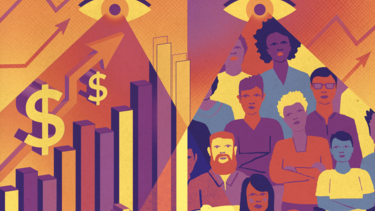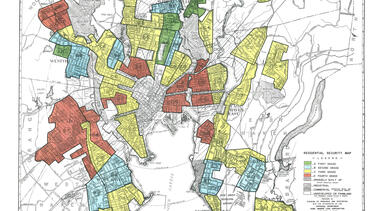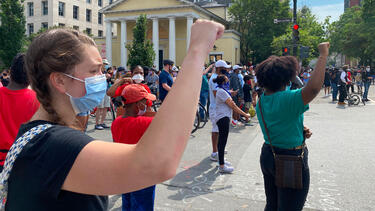Diversity and Inclusion
For Women, Female Peer Groups Are Crucial for Career Advancement
When women have more female peers in their MBA programs, they are more likely to reach senior management roles, according to a new study co-authored by Yale SOM’s Menaka Hampole.

Is the Art Market Fair to Women?
Why do women artist appear less frequently at auctions and in galleries? A study of Yale Art School graduates over 120 years, co-authored by William Goetzmann of Yale SOM, suggests that institutions pose a bigger obstacle than market participants.

The Reckonings Facing the Theater
The challenges of the last several years, including the upheaval of COVID-19 and the anti-racism movement that followed George Floyd’s murder, have had profound consequences for American theater. In a recent conversation with Yale SOM, three Yale alumni in the industry offered their perspectives on what comes next.

Making the ‘Business Case for Diversity’ Can Backfire with Underrepresented Groups
Many companies say that they are committed to diversity because it boosts firm performance. In a new study, Oriane Georgeac at Yale SOM and Aneeta Rattan at London Business School find that this explanation can have detrimental consequences for the very applicants that companies seek to attract.

The Past and Present of Race, Money, and Equity in America
Journalists Louise Story ’06 and Ebony Reed argue that understanding the grim history of race and money in the United States is key to building a more equitable future.

Medicare Helps Close Racial Gaps in Access to Healthcare
In a new study, Yale SOM’s Paul Goldsmith-Pinkham and his co-authors use the transition to Medicare eligibility to test whether universal health coverage can help reduce racial disparities in health.

How the Philadelphia Schools Confronted Systemic Racism
William Hite, Philadelphia’s superintendent of schools, describes how the system sought to create an inclusive process for rooting racism out of its structures.

A Look Back at 2021 through Our Top Stories
This year, many of our most-read stories examined facets of the continuing COVID-19 pandemic, including the challenges of vaccination, the return to in-person work, the effectiveness of masks, and the bottleneck in the supply chain.

What Activists Want from Allies
In a new study, Yale SOM’s Michael Kraus and PhD graduate Jun Won Park found that activists working for social change value allies who are trustworthy and willing to defer to activists’ leadership.

Can Bias Be Eliminated from Algorithms?
The predictive software used to automate decision-making often discriminates against disadvantaged groups. A new approach devised by Soheil Ghili at Yale SOM and his colleagues could significantly reduce bias while still giving accurate results.

Numbers, Not Narratives, Remedy Misperceptions of the Racial Wealth Gap
A series of studies co-authored by Yale SOM’s Michael Kraus have shown that Americans vastly underestimate the wealth gap facing Black Americans. The latest research shows that detailed data is more effective than personal narratives in improving their understanding.
